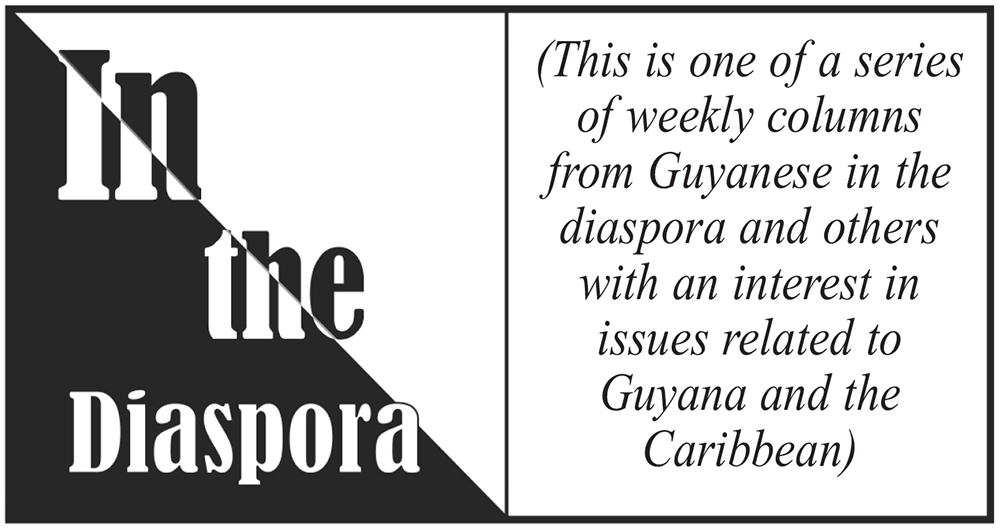By Michael Witter
Michael Witter is a retired Senior Lecturer at the University of the West Indies, and currently researches and consults on problems of Small Island Development with special reference to the Caribbean islands and coastal territories.
Last week, my incurably Caribbean colleague who was born in Guyana but now lives in Jamaica shared his message, Happy CARICOM Day, with me. As encouraging as it was to know that there are still people committed to Caribbean integration, it is just as sad to remember how little the Jamaican population – and perhaps many other Caribbean peoples – know about CARICOM, and how much our own political leadership has contributed to their ignorance by their disregard, and even contempt, for things and people Caribbean. The truth is that CARICOM has had little positive impact on the lives of the ordinary people because our leadership has opted for curry-favouring bilateral relations with the USA and has arguably gone beyond pure neglect of regional integration schemes.
The most notable success of CARICOM has been its common stand for development and against injustice and exploitation in international fora. Today’s leadership has even broken from that and seems willing to be used as agents for the geopolitical interests of those countries that have for centuries wielded imperial power at great cost to the Jamaican people. From time to time, we hear protests of embarrassment about Jamaica’s puppet behaviour in support of unjust international relations. The popular memory is that we once had a proud record of even global leadership on matters of human rights and justice, such as the fight against apartheid in South Africa. Today, we do nothing, and say nothing, as the apartheid noose tightens around Palestine.
Sadly, too many of the young are unaware of our history, distracted from what is done in our name in the present, and ignorant of how our Jamaica shirks its responsibilities to the regional integration process that is CARICOM.
For years, it has been well established that cooperation could meet most of the basic food needs of the region. Guyana, Belize and Suriname can produce all the grains, vegetables, root crops and animal protein to feed the region and the tourists who come here. Yet, the domestic food supply continues to shrink in countries like Jamaica, and correspondingly the import bill for junk food from the USA and Europe rises inexorably. Cooperation between Guyana and Trinidad and Tobago has great potential for supplying the region’s energy needs for a programme of transition away from fossil fuel and to more intensive use of renewable energy resources. Food and energy are the main items in the consumer goods import bill. Freeing up space here would enhance the ability to import capital goods and technology to process the very same agricultural produce into exotic exports to the rest of the world, to hasten the transition to renewable energy, and to meet more of the basic needs of our population. That is the concrete economic value of CARICOM that our leaders have eschewed in favour of cheap jobs in Call Centres – the so-called business outsourcing – and cheap jobs in mass tourism from which there is no evidence of net earnings of foreign exchange. So, our two most important resources – people and land – continue to be mobilized by and for foreign capital with very little returns to our country. Indeed, in the case of land, there is such a rapid sale of lands to foreigners that there is rising concern that Jamaicans will be alienated even further from access to the beach. Meanwhile, an undeclared war is being waged to displace Maroons from their traditional lands to secure bauxite reserves for multinational companies to mine.
Happy CARICOM Day rings hollow and sad to me. It reminds us of how much we have collaborated in our own underdevelopment at the expense of the regional integration movement that could have empowered us. It causes us to wonder again why the CARICOM Secretariat appears to be so ineffective in holding the political leadership to account. We know all the reasons given – lack of resources, especially staff, and disregard by the political leadership of the region. It is time to shame the leaders, not to the point where their egos will drive them to abandon the movement, but just enough to get them to even pretend to be acting on the decisions that they have collectively taken in the interest of the region’s peoples. It is time to raise the consciousness of the young people on regional integration. Let them ask the questions of the national leadership that may be too delicate for the officers of CARICOM. It is time to charge the regional institutions, especially the University of the West Indies, with raising the profile of regional integration in their work. They too have become progressively nationalized by default, and lost their focus on the region as a whole.
Happy CARICOM Day must mean a re-dedication to raising the consciousness of the Caribbean people in such a way that they see regional integration in their day-to-day economic and social interests. It should be a solemn day of re-dedication, and not a day of celebration.









